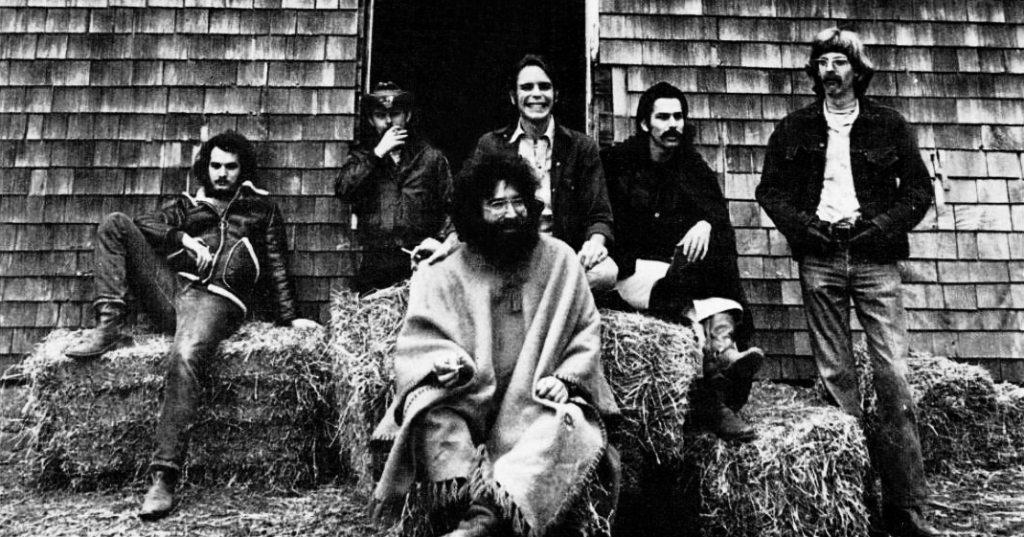
Image via Wikimedia Commons
A quick heads up: On Monday, Stanford Continuing Studies will kick off an online course called Psychedelia and Groove: The Music and Culture of the Grateful Dead. Taught by David Gans (author of Playing in the Band: An Oral and Visual Portrait of the Grateful Dead), the course got a nice shout out from drummer Mickey Hart on Instagram. Open to any adult, the course description reads:
The Grateful Dead’s groundbreaking fusion of music, counterculture, and community engagement forged an enduring legacy that transcends generations while shaping the evolution of music and cultural expression. Fresh off the farewell performance of Dead & Company in San Francisco in July, this course invites students to delve into the phenomenon that is the Grateful Dead through a captivating exploration of the band’s history, music, and cultural impact.
The course will start by tracing the band’s evolution, from its humble beginnings to its legendary status as one of the most influential bands in music history. We will explore the band’s formation, the early San Francisco music scene, its unique approach to touring, and the various eras of its existence. We’ll next embark on a sonic journey through the band’s diverse and ever-evolving musical catalog. Students will dissect the distinctive blend of rock, folk, blues, and improvisation that defined the Grateful Dead’s sound.
Finally, we’ll examine the band’s cultural impact on society, diving into the band’s connection to art, literature, and social change, as well as its unique fan culture and the phenomenon of the “Deadhead.” By the end of the course, students will have a well-rounded appreciation for the roots, struggles, and milestones that shaped the Grateful Dead’s trajectory, an understanding of its profound impact on music and culture, and insight into a legacy that still resonates deeply today.
Guest speakers for this course will include Steve Silberman, who was featured in the documentary Long Strange Trip and is a regular voice on the Good Ol’ Grateful Deadcast. He is also a co-author of Skeleton Key: A Dictionary for Deadheads.
Again, the course starts on Monday, January 22. Tuition is $405. You can enroll here.
Stanford Continuing Studies also offers many other courses online, across many disciplines, at a reasonable price. Check out the catalogue here.
Related Content
Stream a Massive Archive of Grateful Dead Concerts from 1965–1995
The Grateful Dead Movie: Watch It Free Online

